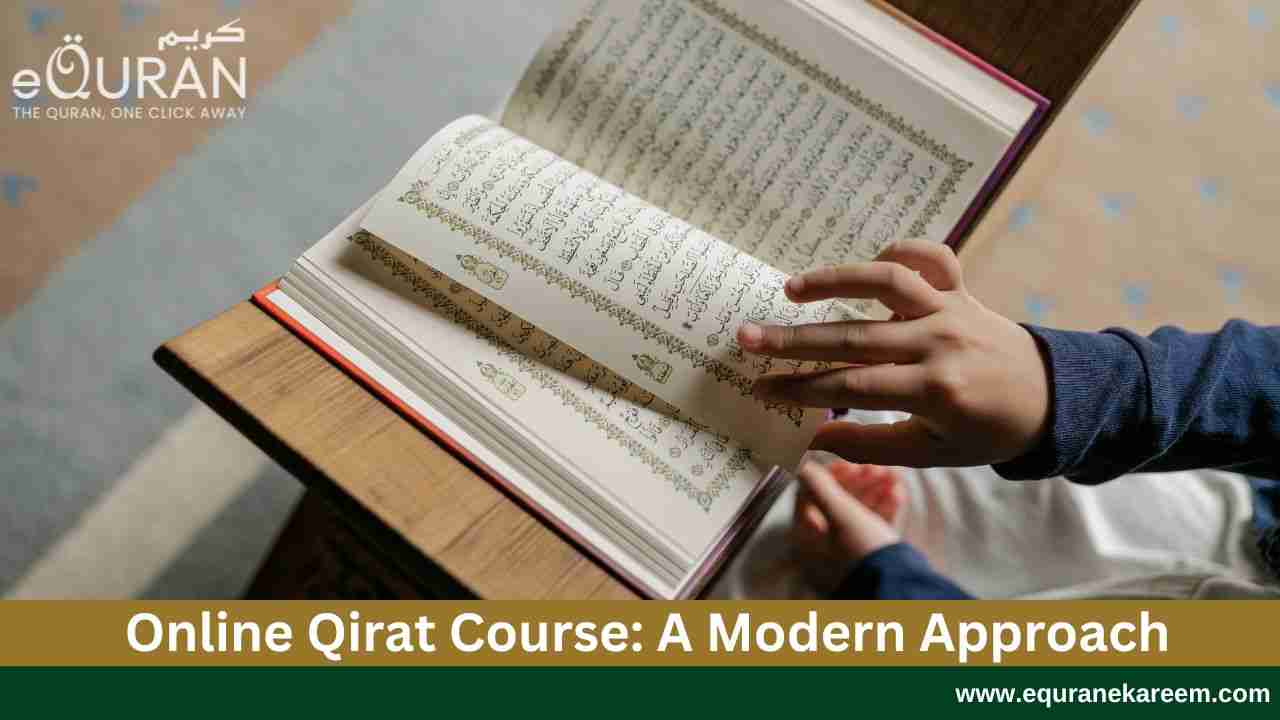Reciting the Quran beautifully and correctly is a skill that holds significant importance in the life of a practicing Muslim. The journey to mastering Quranic recitation, or Tajweed, often begins with a Nazra Quran course. This course serves as the foundational step in developing superior recitation skills, and its progression is designed to guide learners through the complexities of proper Quranic pronunciation and fluency. This article explores the stages of a Nazra Quran course, the skills developed at each stage, and the importance of continuous learning and practice.
Introduction to Nazra Quran
What is Nazra Quran?
Nazra Quran refers to the initial stage of learning to recite the Quran by looking at the text, without necessarily understanding its meaning. This stage focuses primarily on reading the Arabic script of the Quran fluently and correctly. The term "Nazra" means "to look" in Arabic, emphasizing the importance of visual engagement with the Quranic text.
Importance of Nazra Quran
Learning to recite the Quran correctly is not only a spiritual duty but also a means to preserve the linguistic and phonetic integrity of the holy text. Proper recitation enhances the listener's spiritual experience and ensures that the Quran is passed down accurately through generations. Nazra Quran serves as the gateway to more advanced stages of Quranic studies, including Tafseer (interpretation) and Hifz (memorization).
Stages of Nazra Quran Course
Stage 1: Introduction to Arabic Alphabet
The journey of Nazra Quran begins with learning the Arabic alphabet. This stage is crucial as it lays the foundation for accurate pronunciation and reading. Students learn to identify, pronounce, and write each letter of the Arabic alphabet, focusing on their individual sounds.
Key Skills Developed:
- Recognition of Arabic letters in different forms (initial, medial, final, and isolated).
- Correct pronunciation of each letter.
- Basic writing skills for the Arabic script.
Stage 2: Joining Letters and Basic Words
Once students are familiar with the Arabic alphabet, they progress to joining letters to form simple words. This stage introduces the concept of connecting letters, which is unique to the Arabic script. Students practice reading and writing basic words, emphasizing the correct pronunciation of combined letters.
Key Skills Developed:
- Understanding the rules of letter connection in Arabic.
- Formation and pronunciation of basic words.
- Enhanced reading fluency.
Stage 3: Basic Tajweed Rules
Tajweed refers to the set of rules governing the correct pronunciation of Quranic Arabic. In this stage, students are introduced to the basic rules of Tajweed, including the pronunciation of vowels, the rules of noon and meem sakinah, and the different types of madd (elongation).
Key Skills Developed:
- Mastery of basic Tajweed rules.
- Improved pronunciation and fluency.
- Ability to recognize and apply Tajweed rules while reading.
Stage 4: Reading Short Surahs
After mastering the basics, students begin to read short Surahs (chapters) from the Quran. This stage focuses on applying the learned Tajweed rules to actual Quranic text, starting with the shorter and simpler Surahs. This practice helps build confidence and fluency in recitation.
Key Skills Developed:
- Application of Tajweed rules in real Quranic text.
- Improved reading speed and accuracy.
- Familiarity with common Quranic vocabulary and phrases.
Stage 5: Advanced Tajweed and Long Surahs
The final stage of the Nazra Quran course involves learning advanced Tajweed rules and reciting longer Surahs. Students delve deeper into the intricacies of Tajweed, including the rules of idgham, ikhfa, and iqlab. This stage requires consistent practice and regular feedback from qualified teachers.
Key Skills Developed:
- Mastery of advanced Tajweed rules.
- Ability to recite longer and more complex Surahs.
- Enhanced fluency and confidence in Quranic recitation.

Online Qirat Course: A Modern Approach
Advantages of Online Learning
In today's digital age, the availability of Online Qirat Courses has made it easier for learners around the world to access quality Quranic education. These courses offer numerous advantages, including flexibility, personalized learning, and access to qualified teachers regardless of geographical constraints.
Key Benefits:
- Flexible scheduling to accommodate different time zones and personal commitments.
- One-on-one sessions with experienced teachers for personalized attention.
- Access to a variety of resources, including video tutorials, practice exercises, and interactive platforms.
Structure of an Online Qirat Course
An Online Qirat Course typically follows a structured progression similar to traditional Nazra Quran courses. It begins with the basics of the Arabic alphabet and gradually advances to more complex Tajweed rules and Quranic recitation. Online platforms often incorporate multimedia tools to enhance the learning experience, such as interactive whiteboards, audio recordings, and live feedback.
Key Components:
- Interactive lessons on the Arabic alphabet and basic words.
- Video tutorials explaining Tajweed rules.
- Regular practice sessions with live feedback.
- Assessments to track progress and identify areas for improvement.
Ensuring Quality and Consistency
To ensure quality and consistency in an Online Qirat Course, it is essential to choose reputable platforms with qualified teachers. Look for courses that offer detailed curriculum outlines, transparent teacher qualifications, and positive reviews from past students. Consistent practice and regular interaction with instructors are crucial for effective learning.
Tips for Success:
- Set a regular study schedule and stick to it.
- Take advantage of multimedia resources to reinforce learning.
- Seek feedback from teachers and actively work on areas of improvement.
- Practice regularly to build and maintain fluency.
Importance of Continuous Learning
Beyond the Nazra Quran Course
Completing a Nazra Quran course is a significant achievement, but it is just the beginning of a lifelong journey in Quranic studies. Continuous learning and practice are essential to maintaining and improving recitation skills. Engaging in regular recitation, attending advanced Tajweed classes, and participating in Quranic study circles can help deepen one's connection to the Quran.
Role of Advanced Tajweed Courses
Advanced Tajweed courses build on the foundation laid by Nazra Quran courses, delving deeper into the rules and nuances of Quranic recitation. These courses often cover advanced topics such as the rules of stopping and starting, the characteristics of letters, and the intricacies of Quranic phonetics.
Key Benefits:
- Enhanced understanding of complex Tajweed rules.
- Improved precision and beauty in recitation.
- Deeper appreciation for the linguistic and phonetic richness of the Quran.
Encouraging Lifelong Engagement
To develop superior recitation skills, it is important to view Quranic learning as a lifelong endeavor. Encouraging consistent engagement with the Quran through regular recitation, study, and reflection helps maintain a strong connection to the holy text. Additionally, teaching others and participating in community recitation events can reinforce one's skills and inspire others to embark on their own Quranic journeys.
Strategies for Lifelong Learning:
- Schedule regular recitation sessions, even after completing formal courses.
- Join or form study groups to explore Quranic meanings and Tajweed rules.
- Participate in community events and competitions to stay motivated.
- Continuously seek new learning opportunities and resources.
Conclusion
The progression of a Nazra Quran course is designed to develop superior recitation skills through a structured and comprehensive approach. From learning the Arabic alphabet to mastering advanced Tajweed rules, each stage builds on the previous one, ensuring a solid foundation for lifelong Quranic engagement. With the advent of Online Qirat Courses, accessing quality Quranic education has become more convenient and flexible, catering to the needs of learners worldwide. By embracing continuous learning and practice, individuals can maintain and enhance their recitation skills, deepening their connection to the Quran and fulfilling their spiritual obligations.



